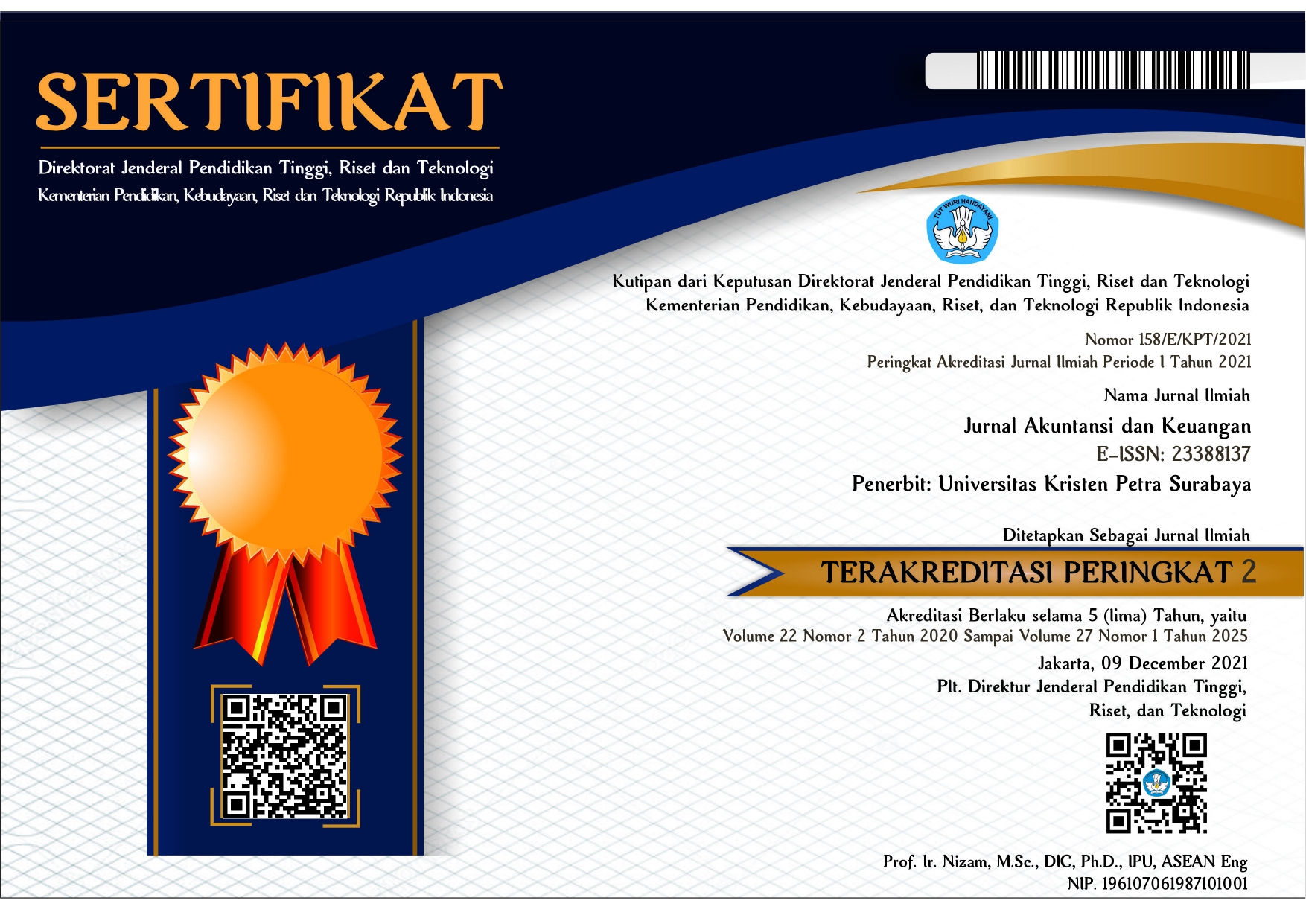Asimetri pada Flypaper Effect: Bukti Empiris Pemanfaatan Dana Alokasi Umum pada Pemerintah Daerah di Indonesia
DOI:
https://doi.org/10.9744/jak.14.1.45-55Keywords:
Asymmetries, flypaper effect, grant, taxAbstract
The main objective of this research is to provide empirical proof of occurrence of asymmetries in the flypaper effect for the Indonesian Municipalities. The flypaper effect, when an unconditional lump-sum grant to a municipal government increases spending in a greater proportion than an equivalent raise in municipal revenue. Using a panel of data on Indonesian municipalities covering the period 2000-2010, we also clear evidence of there is asymmetrical reactions. More precisely, the results suggest the presence of a fiscal replacement type of asymmetry: when grants grow, municipalities spend most of the additional revenue. Furthermore, when grants fall, spending is unaffected and municipalities compensate the loss through additional taxation.Downloads
How to Cite
., J. (2013). Asimetri pada Flypaper Effect: Bukti Empiris Pemanfaatan Dana Alokasi Umum pada Pemerintah Daerah di Indonesia. Jurnal Akuntansi Dan Keuangan, 14(1), 45–55. https://doi.org/10.9744/jak.14.1.45-55
Issue
Section
Articles
License
Authors who publish with this journal agree to the following terms:
- Authors retain the copyright and publishing right, and grant the journal right of first publication with the work simultaneously licensed under a Creative Commons Attribution License that allows others to share the work with an acknowledgement of the work's authorship and initial publication in this journal.
- Authors are able to enter into separate, additional contractual arrangements for the non-exclusive distribution of the journal's published version of the work (e.g., post it to an institutional repository or publish it in a book), with an acknowledgement of its initial publication in this journal.
- Authors are permitted and encouraged to post their work online (e.g., in institutional repositories or on their website) followingthe publication of the article, as it can lead to productive exchanges, as well as earlier and greater citation of published work (See The Effect of Open Access).<a href="http://creativecommons.org/lice














